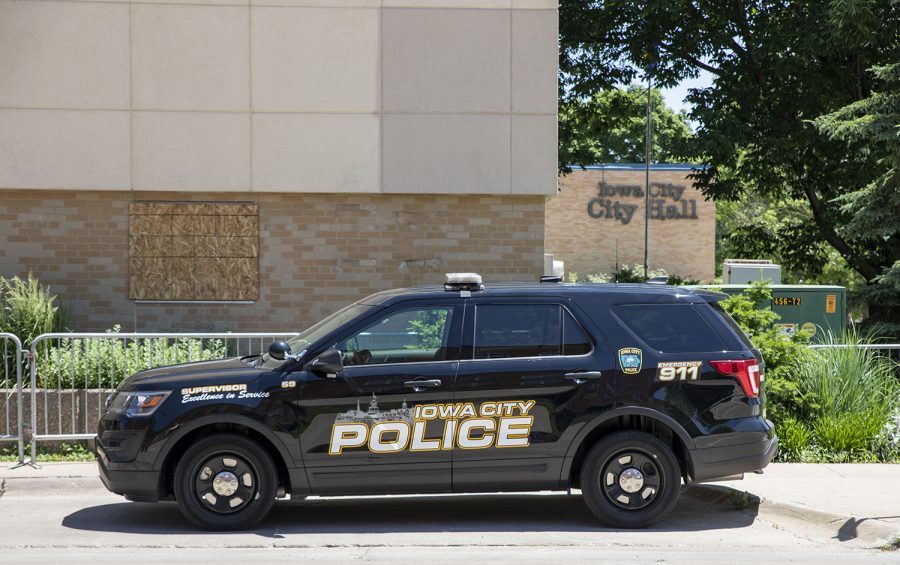Opinion | ICPD needs systemic change, not a vague rule implemented.
While the current policy proposal points to the right direction, it is not the same as us walking down the path to racial equality.
Iowa City Police Dept. 410 E. Washington St.As seen on Monday June 8,2020 (Jeff Sigmund/Photojournalist)
December 2, 2020
Systemic racism and strategies to combat it has been one of the prominent subjects this year. Even though conversations and efforts have started, it’s important that these efforts actually implement real change.
Recently, the Iowa City City Council voted for an ordinance that would prohibit the Iowa City Police from racial profiling and performing biased policing. While the order explicitly defines the definition of racial profiling, there is no outline of punishment or consequences should any police officer perform such behavior.
Systemic racism is an issue that needs to be addressed, especially in the police force. Although it looks like the Iowa City Police is making efforts, the ordinance can be seen as just a “performance” instead of any real change actually being made. How can we ensure that all police officers are following this code if it is illustrated like a suggestion?
The only way for real change to occur is to first recognize we have a broken system, and second to make changes in its roots.
It’s not just about having “a few bad apples.” The police system is broken which is why we keep seeing the same injustices of systemic racism over and over again. Elijah McClain, George Floyd, Breonna Taylor, and so many others are victims of this corruption which needs to end.
Iowa was ranked the fifth highest in the nation for racial disparity for marijuana possession in 2018. In Johnson County alone, Black people were arrested 5.4 more times than their white counterparts for marijuana possession.
So, what needs to change in the system? While implicit bias training has been installed throughout the country, it hasn’t been enough to create significant change. Not only do we have to change training and outline consequences for biased performances like racial profiling, but we also have to consider changing the criteria for officers.
For example, it takes about two years to become a police officer in Iowa, and eligibility includes being at least 18 years of age with a high school diploma or GED.
Now this is just my point of view, but I see a few issues with these requirements.
First, if we expect doctors and lawyers whose responsibilities include saving lives and practicing the law to obtain at least a college degree, why should it be any different for police officers? If their job is enforcing the law and protecting the people, shouldn’t they at least obtain a type of college degree involving criminal justice or psychology to better understand stressful situations?
Second, 87.2 percent of officers are male. It’s also important to point out that scientists have found that the male brain doesn’t fully develop until around the age of 25. Why are we setting the minimum age requirement at a point where men aren’t at their full mental capacities to make the best decisions in stressful situations?
No offense to any of my friends, but the thought of some of them being able to be a police officer at this point in their life isn’t exactly a pretty idea.
We need to keep having conversations and fighting against systemic racism in the police force. However, we must advocate for real change. It’s going to take more than just ‘recommendations’ to eliminate corruption that has been rooted in the system for years. Statistics don’t lie, and including the change criteria, training, and questioning current efforts must all be included to try and end racial injustice.
Columns reflect the opinions of the authors and are not necessarily those of the Editorial Board, The Daily Iowan, or other organizations in which the author may be involved.



